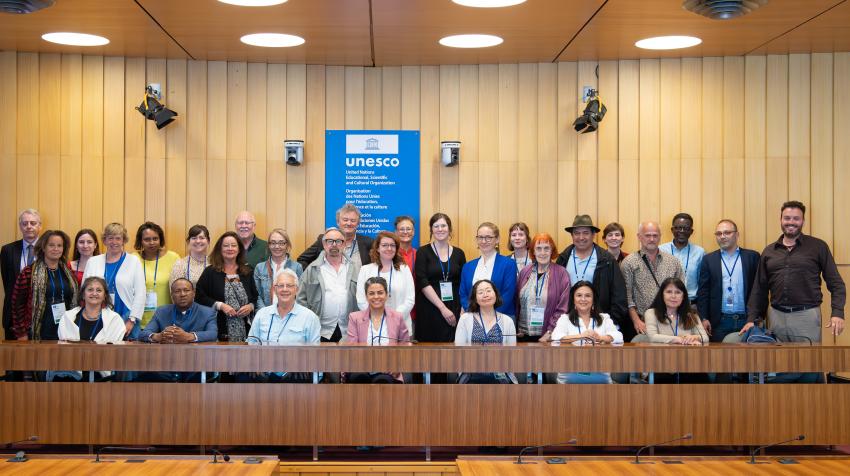December 2012, No. 4 Vol. XLIX, Delivering Justice
The International Court of Justice (ICJ) is the principal judicial organ of the United Nations. Its seat is at the Peace Palace in The Hague, Netherlands. It operates under a Statute, which is an integral part of the Charter of the United Nations and to which all Member States are ipso facto parties. The Court is composed of 15 judges elected to nine‑year terms of office by the United Nations General Assembly and Security Council, sitting independently of each other, and may not include more than one judge of any nationality. The composition of the Court must reflect the main forms of civilization and the principal legal systems of the world. (For the current list of ICJ judges, see box No.1, below.)
The Court has a dual role: to settle in accordance with international law the legal disputes submitted to it by States, and to give advisory opinions on legal questions referred to it by duly authorized international organs and agencies.
All Member States of the United Nations are entitled to apply to and appear before the Court in contentious cases. The Court is competent to entertain a dispute only if the States concerned have accepted its jurisdiction in one or more of the following ways:
1. By the conclusion of a special agreement between them to submit the dispute to the Court;
2. By virtue of a jurisdictional clause, i.e., typically, when they are parties to a treaty containing a provision whereby, in the event of a disagreement over its interpretation or application, one of them may refer the dispute to the Court. Over 300 treaties or conventions contain a clause to that effect;
3. Through the reciprocal effect of declarations made by them under the Statute whereby each has accepted the jurisdiction of the Court as compulsory in the event of a dispute with another State having made a similar declaration. The declarations of 69 States are at present in force, a number of them having been made subject to the exclusion of certain categories of dispute, and;
4. If a State has not recognized the jurisdiction of the Court at the time an application for instituting proceedings against it is filed, that State has the possibility of accepting such jurisdiction subsequently to enable the Court to entertain the case: the Court thus has jurisdiction as of the date of acceptance in virtue of the rule of forum prorogatum. In cases of doubt as to whether the Court has jurisdiction, it is the Court itself which decides (compétence de la compétence).
The procedure followed by the Court in contentious cases is defined in its Statute, and in the Rules of Court adopted under the Statute. The proceedings include a written phase in which the parties file and exchange pleadings, and an oral phase consisting of public hearings at which agents and counsels address the Court. As the Court has two official languages, French and English, everything written or said in one language is translated into the other. After the oral proceedings, the Court deliberates in camera and then delivers its judgment at a public sitting. The judgment is final and without appeal. Should one of the States involved fail to comply with it, which is exceptional in practice, the other party may have recourse to the United Nations Security Council.
The advisory procedure of the Court is open solely to international organizations. The only bodies currently authorized to request advisory opinions of the Court are five organs of the United Nations and 16 agencies of the United Nations family. Upon receiving a request, the Court decides which States and organizations might provide useful information and gives them the opportunity of presenting written or oral statements. The Court shall otherwise be guided by the provisions of the Statute and of the Rules which apply in contentious cases to the extent to which it recognizes them to be applicable and shall, for this purpose, consider more specifically whether the request relates to a legal question actually pending between two or more States. In principle, the Court's advisory opinions are consultative in character and are, therefore, not binding as such on the requesting bodies. However, certain instruments or regulations can provide in advance that the advisory opinion shall be binding.
Since 1946, the Court has delivered more than 110 judgments on disputes concerning, inter alia, land frontiers, maritime boundaries, territorial sovereignty, the non‑use of force, violations of international humanitarian law, non-interference in the internal affairs of States, diplomatic relations, hostage taking, the right of asylum, nationality, guardianship, rights of passage and economic rights. Since 1946, the Court has also given 27 advisory opinions concerning, among others, the accordance with international law of the unilateral declaration of independence in respect of Kosovo, the legal consequences of the construction of a wall in the occupied Palestinian territory, the status of human rights rapporteurs, the legality of the threat or use of nuclear weapons, the applicability of the United Nations Headquarters Agreement, judgments rendered by international administrative tribunals, the territorial status of South West Africa (now Namibia) and Western Sahara, expenses of certain United Nations operations, reparation for injuries suffered in the service of the United Nations, and admission to United Nations membership.
Judge Peter Tomka, President of the ICJ, addressed representatives of the United Nations Member States gathered in New York on 24 September 2012 for the High-level Meeting on the Rule of Law at the National and International Levels. On that occasion, he pointed out that "the international community now has over 90 years of experience with the judicial settlement of disputes", beginning in 1922 with the establishment of the Permanent Court of International Justice. "The key role in this regard has been assigned by the Charter to the International Court of Justice, which is one of the six main organs of the Organization and its principal judicial organ", he observed, adding that "under Article 36 (3) of the Charter of the United Nations, the Security Council could recommend to the Parties to refer a legal dispute to the International Court of Justice".
In his address, the ICJ President emphasized that the Court had more than doubled its work rate since 1990: "In the last 22 years of its activities, since 1990, the Court has rendered more judgments than during the first 44 years of its existence; 60 as compared to 52". The average number of judgments rendered each year by the Court between 1990 and 2012 (2.72) is thus twice as high as that recorded for the period 1946‑1989 (1.18). In 2012, in addition to one advisory opinion, the Court has rendered four judgments and recently held hearings in two further cases (Burkina Faso/Niger in October and Peru v. Chile in December). (For the current list of cases pending before the ICJ, see box No. 2.)
"The Court—through its activities—is an important agent for upholding and promoting the rule of law at the international level, in relations between States. It has the important and noble role of determining existing law and rendering justice between States", the President continued, noting that the Court had only "rather limited resources, its budget representing some 0.8 per cent of the United Nations regular budget". The Court's annual budget for the biennium 2010/2011 was, in fact, $23.3 million.
"The Court will continue in its efforts to adjudicate disputes which may be submitted to it in the future, with dedication, in utmost impartiality, independence, and in accordance with international law within the bounds of the jurisdiction conferred upon it", concluded President Tomka, who expressed the hope that the principal judicial organ of the United Nations will have "further opportunities to contribute, through its activities, to the strengthening of the rule of law at the international level". He also used the occasion to welcome the decision of Secretary-General Ban Ki-moon to "launch a campaign to increase the number of Member States that accept as compulsory the jurisdiction of the International Court of Justice.1
Box No. 1 - Who are the current Members of the Court?
The present composition of the Court is as follows: President Peter Tomka (Slovakia); Vice-President Bernardo Sepúlveda-Amor (Mexico); Judges Hisashi Owada (Japan), Ronny Abraham (France), Kenneth Keith (New Zealand), Mohamed Bennouna (Morocco), Leonid Skotnikov (Russian Federation), Antônio A. Cançado Trindade (Brazil), Abdulqawi A. Yusuf (Somalia), Christopher Greenwood (United Kingdom), Xue Hanqin (China), Joan E. Donoghue (United States of America), Giorgio Gaja (Italy), Julia Sebutinde (Uganda) and Dalveer Bhandari (India). The Registrar of the Court is Mr. Philippe Couvreur, of Belgian nationality, and the Deputy-Registrar is Ms. Thérèse de Saint Phalle, of American and French nationality.Box No. 2 - Pending cases
• As at 10 December 2012, 10 cases are pending before the ICJ:
• Gabčíkovo-Nagymaros Project (Hungary/Slovakia)
• Armed Activities on the Territory of the Congo (Democratic Republic of Congo v. Uganda)
• Application of the Convention on the Prevention and Punishment of the Crime of Genocide (Croatia v. Serbia)
• Maritime Dispute (Peru v. Chile)
• Aerial Herbicide Spraying (Ecuador v. Colombia)
• Whaling in the Antarctic (Australia v. Japan)
• Frontier Dispute (Burkina Faso/Republic of Niger)
• Certain Activities carried out by Nicaragua in the Border Area (Costa Rica v. Nicaragua)
• Request for Interpretation of the Judgment of 15 June 1962 in the Case concerning the Temple of Preah Vihear (Cambodia v. Thailand) (Cambodia v. Thailand)
• Construction of a Road in Costa Rica along the San Juan River (Nicaragua v. Costa Rica)
Note
1 Delivering justice: programme of action to strengthen the rule of law at the national and international levels, Report of the Secretary-General, 16 March 2012.
The UN Chronicle is not an official record. It is privileged to host senior United Nations officials as well as distinguished contributors from outside the United Nations system whose views are not necessarily those of the United Nations. Similarly, the boundaries and names shown, and the designations used, in maps or articles do not necessarily imply endorsement or acceptance by the United Nations.




